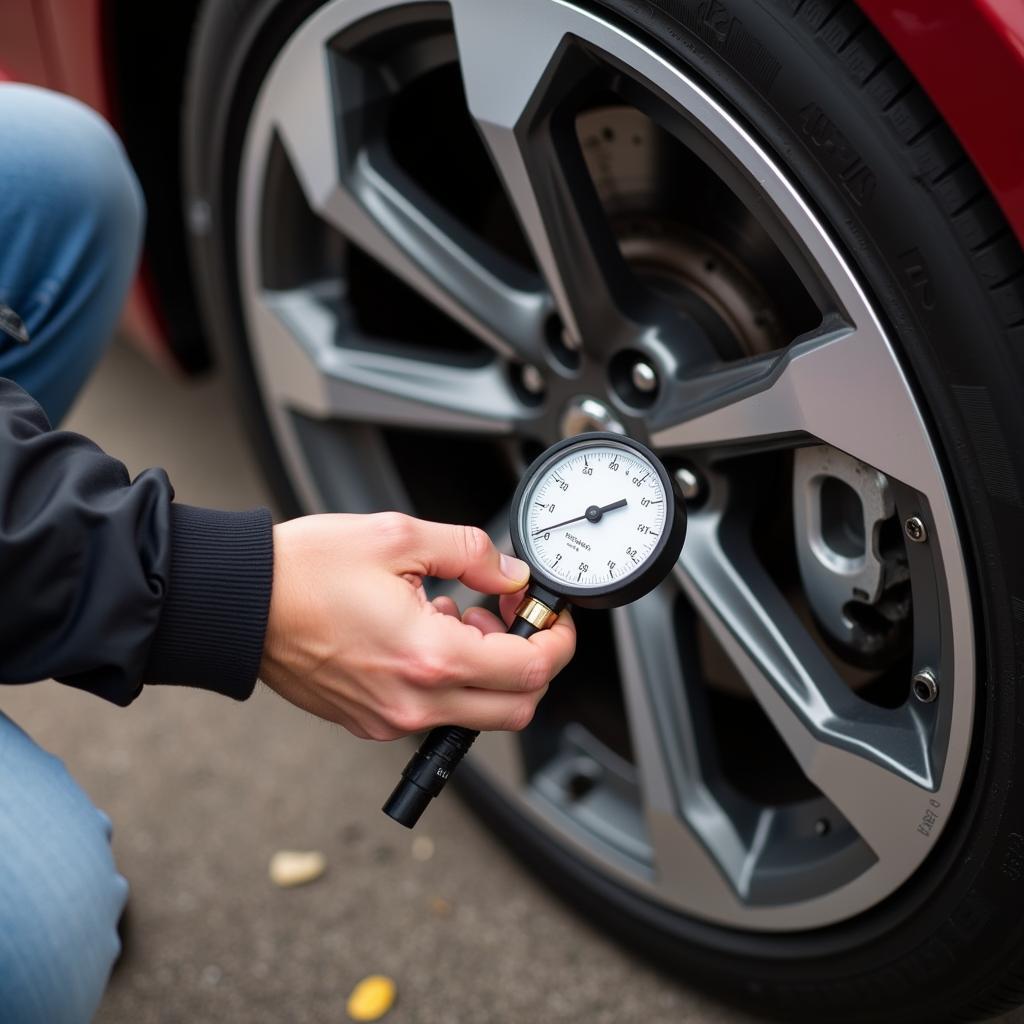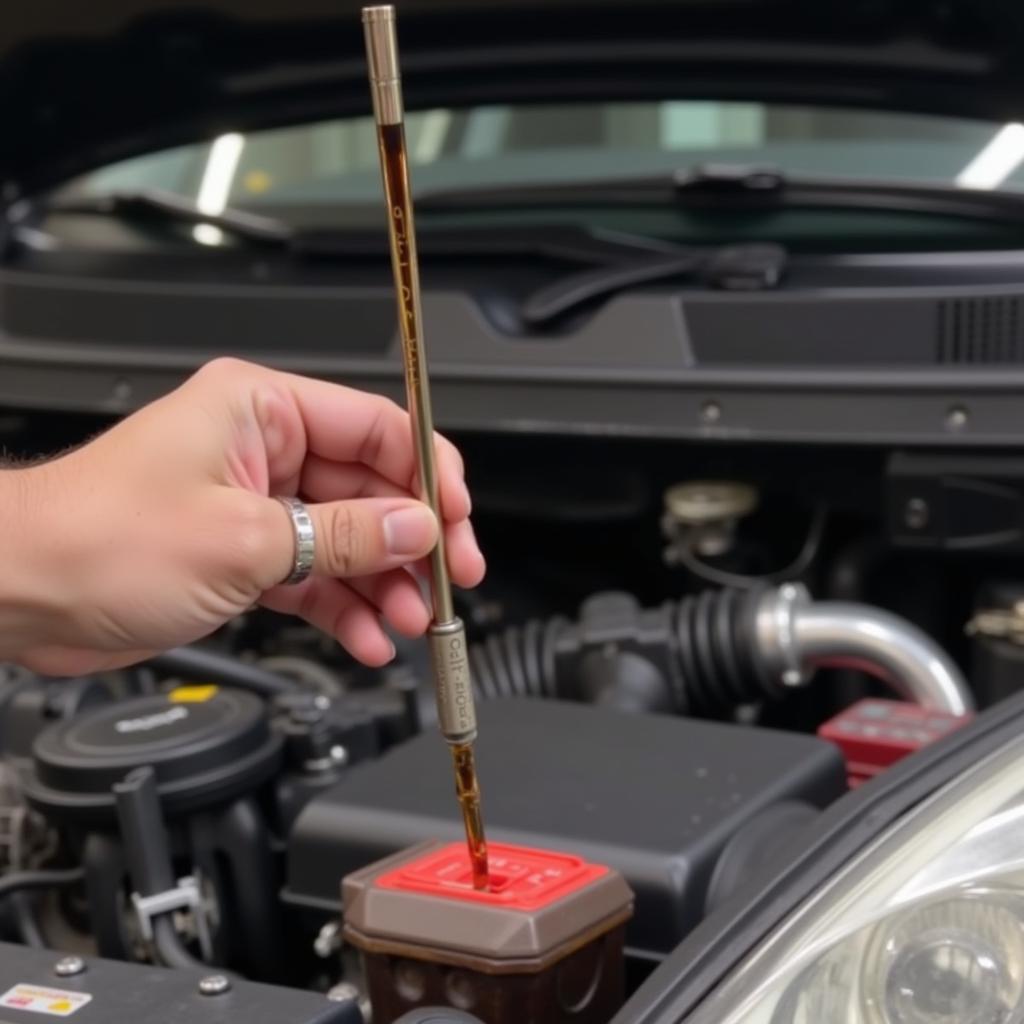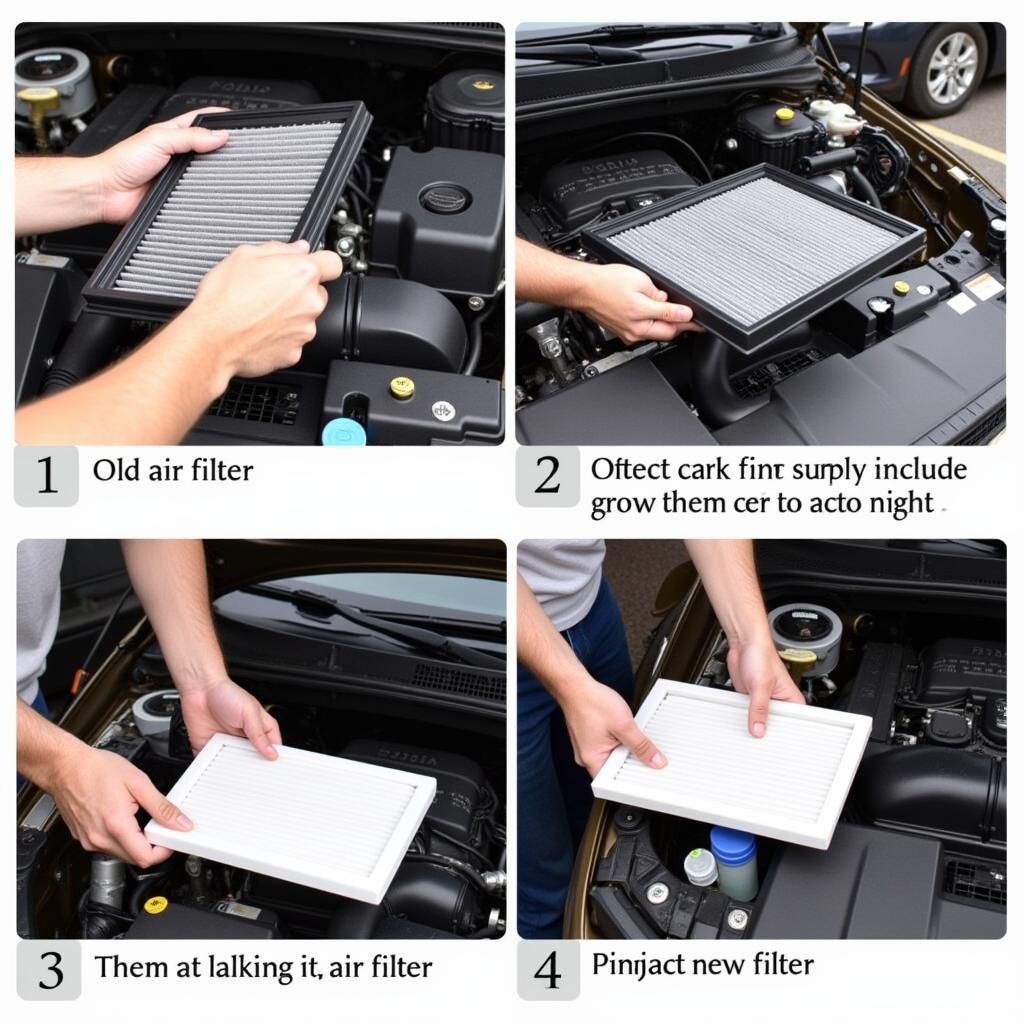Empowering yourself with basic car maintenance knowledge can save you significant money and ensure your vehicle’s longevity. This guide provides a practical approach to Teach Yourself Car Maintenance, covering essential skills and preventative measures that every car owner should know. After reading this guide, you’ll be more confident tackling minor issues and recognizing when professional help is necessary. Check out our recommendations on maintenance cost car brands to get a better understanding of long-term costs.
Why Should You Learn Car Maintenance?
Beyond the obvious financial benefits, understanding how your car works empowers you to make informed decisions about its care. Regular maintenance also contributes significantly to safety, as you’ll be more likely to spot potential problems before they become hazardous. Plus, a well-maintained car performs better and holds its value longer.
Essential Tools for the DIY Mechanic
Before diving into any maintenance task, you’ll need a few essential tools. A basic toolkit should include:
- Screwdrivers (Phillips and flathead)
- Wrenches (metric and standard)
- Pliers (needle-nose and slip-joint)
- Socket set
- Jack and jack stands
- Torque wrench
- Multimeter
Investing in quality tools makes a difference, as they are more durable and easier to use.
 Checking Tire Pressure with a Gauge
Checking Tire Pressure with a Gauge
Getting Started with Basic Maintenance
Several easy maintenance tasks can be performed at home with minimal tools and experience. Let’s start with the basics:
Checking and Changing Your Oil
Regular oil changes are crucial for engine health. Learn how to check your oil level using the dipstick and familiarize yourself with your car’s recommended oil change intervals. While changing the oil yourself can be a bit messy, it’s a straightforward process that can save you money.
Checking and Topping Off Fluids
Beyond oil, your car relies on several other fluids, including coolant, brake fluid, power steering fluid, and windshield washer fluid. Knowing how to check and top off these fluids is essential for preventing damage and ensuring optimal performance. It’s always best to consult your owner’s manual for the correct type of fluid to use. What is the most reliable low-maintenance car? Find out on our site.
 Checking Engine Oil with Dipstick
Checking Engine Oil with Dipstick
Inspecting and Replacing Air Filters
Clean air filters are vital for engine efficiency and fuel economy. Learn how to locate and inspect your engine air filter and cabin air filter. Replacing them is usually a simple task, and new filters are readily available at auto parts stores.
Checking and Inflating Tires
Maintaining proper tire pressure is essential for safety, fuel efficiency, and tire longevity. Learn how to use a tire pressure gauge and inflate your tires to the recommended pressure, which can be found on a sticker inside the driver’s side doorjamb or in your owner’s manual.
“Proper tire inflation can dramatically improve fuel economy and tire lifespan,” advises John Miller, a seasoned automotive technician with over 20 years of experience.
Replacing Windshield Wipers
Worn-out windshield wipers can significantly impair visibility, especially in bad weather. Replacing them is a quick and easy task that can greatly improve driving safety. Find out more about maintaining your car by exploring which cars require least maintenance.
 Changing Car Air Filter
Changing Car Air Filter
Moving on to More Advanced Maintenance
Once you’re comfortable with the basics, you can start tackling slightly more complex tasks:
Inspecting and Replacing Spark Plugs
Spark plugs ignite the fuel-air mixture in your engine’s cylinders. Worn-out spark plugs can lead to reduced performance and fuel economy. Replacing them requires a few specialized tools, but it’s a manageable task for a DIY mechanic.
Checking and Replacing Brake Pads
Brake pads are essential for safe driving. Learning how to inspect and replace them is a valuable skill, though it requires a bit more mechanical knowledge than the basic tasks. If you’re unsure about working on your brakes, it’s always best to consult a professional.
“Brakes are critical safety components; if you’re not comfortable working on them, seek professional help,” says Sarah Johnson, a certified automotive instructor.
Troubleshooting Common Car Problems
Learning to diagnose common car problems can save you time and money. This involves:
- Understanding warning lights on your dashboard
- Learning to identify unusual sounds or smells
- Performing basic checks, such as checking fluid levels and tire pressure
While you might not be able to fix every problem yourself, you’ll be better equipped to describe the issue to a mechanic, which can lead to a quicker and more accurate diagnosis. You can explore our resources on car brand with lowest maintenance cost for valuable insights.
Conclusion
Teach yourself car maintenance and take control of your vehicle’s health and longevity. Starting with simple tasks like checking fluids and progressing to more complex procedures like changing spark plugs, you’ll not only save money but also gain a deeper understanding of your car. For further assistance and expert advice, connect with us at AutoTipPro at +1 (641) 206-8880 or visit our office located at 500 N St Mary’s St, San Antonio, TX 78205, United States. We’re here to help you keep your car running smoothly.
FAQ
-
What are the easiest car maintenance tasks for beginners? Checking fluids, tire pressure, and replacing windshield wipers.
-
How often should I change my car’s oil? Consult your owner’s manual for the recommended interval.
-
What tools do I need for basic car maintenance? A basic toolkit should include screwdrivers, wrenches, pliers, a socket set, a jack, jack stands, a torque wrench, and a multimeter.
-
Is it safe to work on my car’s brakes myself? If you are unsure, consult a professional mechanic. Brakes are a critical safety system.
-
How can I learn more about my specific car model? Refer to your owner’s manual or online resources specific to your make and model.
-
How can I find the cheapest maintenance cars in Canada? You can check our recommendations on cheapest maintenance cars canada.
-
What are the benefits of learning car maintenance? You’ll save money, improve your car’s longevity, and enhance your safety on the road.




Leave a Reply